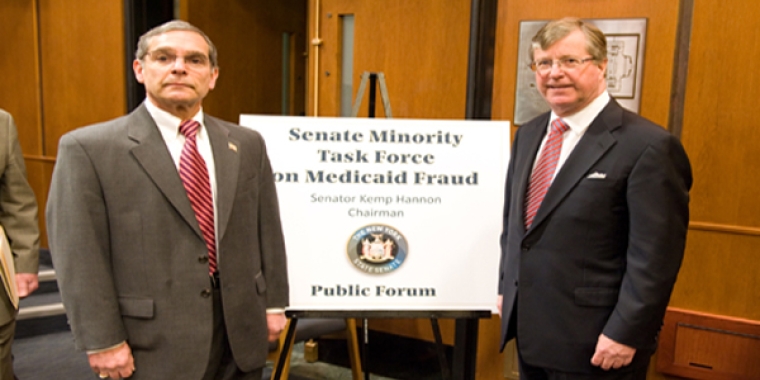
Legislation Seeks To Assist Cornell University Police

Albany, N.Y.-- New York State Senator George H. Winner, Jr. (R-C, Elmira) announced today that he is sponsoring legislation to give the Cornell University Police Department access to a centralized criminal history database maintained by the state Division of Criminal Justice Services (DCJS).
Winner said that DCJS has denied Cornell University police from accessing the division’s criminal history database because, under existing state law, Cornell is not considered a "qualified agency" eligible to obtain the information. Winner’s legislation, which is being sponsored in the Assembly by Assemblywoman Barbara Lifton (D-Ithaca), would add the Cornell University Police to the list of qualified agencies.
"It’s misguided to deny Cornell University police officers access to a state criminal history database that’s vital for them to be able to effectively pursue investigations and protect the campus community as fully as possible. It makes no sense. The Cornell University Police are a fully functioning law enforcement agency. Every available tool of criminal justice should be accessible to their officers so they can perform their public safety responsibilities," said Winner, a member of the Senate Crime, Crime Victims and Correction Committee.
Winner said that New York State commissions Cornell police officers to enforce federal, state and local laws. The department has 60 members, including 47 sworn officers, deployed in seven units including road and bicycle patrol, crime prevention and investigations. The officers complete the 545-hour New York State Basic Police Academy training. They receive ongoing education and training. Cornell Police made approximately 500 penal law arrests in 2005.
Cornell University police currently have access to driver’s license and other non-criminal records through the New York State Police Information Network (NYSPIN). Ironically, Winner said, NYSPIN allows Cornell officers to access criminal histories in every state except New York. The lack of access to the DCJS criminal history database hinders Cornell police from conducting thorough and timely investigations, as well as preventing them from sending out missing person files.



